Reports say airstrike targets Hezbollah-allied Popular Front for the Liberation of Palestine – General Command in the Bekaa Valley near Syria border; no comment from IDF
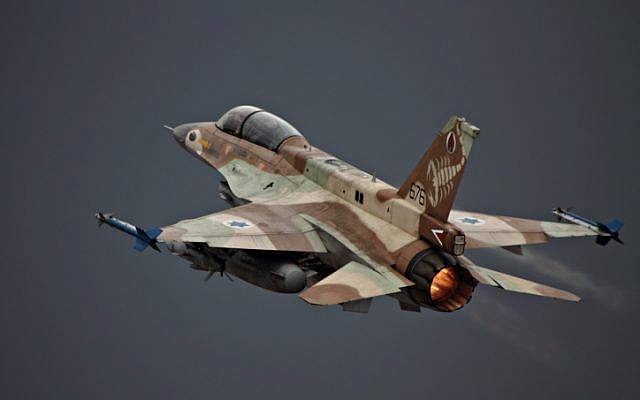
Israeli aircraft carried out an airstrike on a base belonging to a Palestinian terrorist group deep inside Lebanon early Monday morning, Arabic media reported, amid a dramatic spike in tensions.
The reports said the strikes hit a base belonging to the Popular Front for the Liberation of Palestine – General Command (PFLP-GC), a Syria-based terrorist group that fights alongside Syrian dictator Bashar Assad.
The base near the town of Qusayr in the Bekaa Valley in eastern Lebanon, near the border with Syria.
Videos posted on social media showed explosions, accompanied by heavy anti-aircraft fire.
🔴Un misil hostil [Israeli] atacó al PFLP🇵🇸 en el inventario de Qusaya en Bekaa Media, Líbano🇱🇧.pic.twitter.com/eSoqP8TDyI
— Palestina Online 🇵🇸🇵🇸🇵🇸 (@Palesonline) Agosto 25, 2019
A spokesman for the group told the Saudi-owned Al-Hadath news channel that the “Israeli bombing in the Bekaa did not achieve its objectives,” but gave no further details.
There was no comment from the IDF. While Israel has carried out hundreds of strikes in Syria, attacks inside Lebanon are rare. In the few cases when Israel has hit targets in the Bekaa Valley, it has been to stop the transfer of advanced arms from Iran to Hezbollah, via Syria.
The PFLP-GC — not to be confused with the Popular Front for the Liberation of Palestine, which it split off from in 1968 — was responsible for a number of vicious terror attacks in Israel in the 1970s and 1980s, including one against a school bus in northern Israel, which killed nine children and three adults.
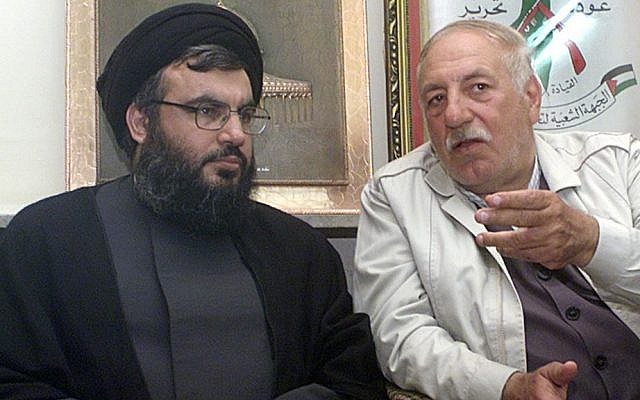
The PFLP-GC largely went underground in the late 1980s, working behind the scenes with the Lebanon-based Hezbollah terror group, but it reemerged in 2011 with the outbreak of the Syrian civil war.
The reported strike follows the bombing of an Iran-linked base in Syria on Saturday that Israel said foiled a plot to launch killer drones into Israel, a drone attack on a Hezbollah office in Beirut and an attack on an Iran-linked militia in Iraq, both on Sunday
Israel did not comment on the drone incident or the Iraq explosions.
Prime Minister Benjamin Netanyahu on Sunday warned neighboring countries that they would be held accountable for any attacks against the Jewish state emanating from their territory.
“We won’t tolerate attacks on Israel from any country in the area. Any country that allows its territory to be used for attacks against Israel will bear the consequences. I stress: The state will bear the consequences,” Netanyahu, who is also defense minister, said during a tour of the Golan Heights with IDF Chief of Staff Aviv Kohavi.
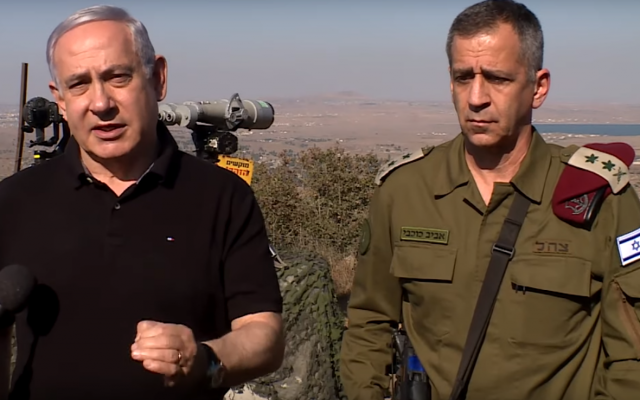
The attacks sparked vows of revenge from Hezbollah leader Hassan Nasrallah and from Iran’s Qassem Soleimani, commander of the Quds Force of the Islamic Revolutionary Guards Corps.
“These insane operations will surely be the last steps of the Zionist regime,” tweeted Soleimani.
Nasrallah threatened Israel with a reprisal attack after two of its members were killed in an Israeli strike in Syria, and two UAVs crashed in and around the terror group’s Beirut offices in an incident also blamed on the Jewish state.
“From tonight, I tell the Israeli army on the border, be prepared and wait for us,” said the Hezbollah leader in a televised address, taunting that a retaliation could come in “one day, two days, three days…”
Israeli forces in the north have been put on high alert, amid fears of a reprisal attack, and Prime Minister Benjamin Netanyahu held an emergency meeting with defense officials overnight Saturday-Sunday amid the heightened tensions.
Lebanese Prime Minister Saad Hariri condemned Israel for allegedly sending drones, calling it a “blatant attack on Lebanon’s sovereignty.”
“This new aggression… forms a threat to regional stability and an attempt to push the situation towards more tension,” Hariri said in a statement.
Hariri also charged that it was in violation of UN Security Council Resolution 1701, which ended the 2006 Second Lebanon War between Israel and terror group Hezbollah.
A Hezbollah spokesman said earlier that an armed Israeli drone exploded outside the organization’s propaganda offices in the Lebanese capital of Beirut, causing damage to the structure. Another Hezbollah spokesman said later that a second drone crashed, causing no damage, and was being studied by the terror group. He denied reports that Hezbollah had shot down the drones.
The Israel Defense Forces said it does not comment on “foreign reports.”
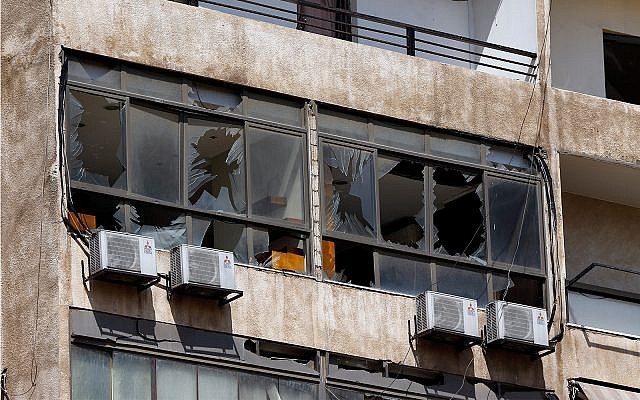
Several well-connected Israeli commentators, including a former IDF general, said the drones appeared to in fact be of Iranian origin.
The Lebanese military confirmed Hezbollah’s claim, saying in a statement, “Two of the Israeli enemy’s drones penetrated Lebanese airspace above the Madi neighborhood in the southern suburb of Beirut. The first fell to the ground and the second exploded in the air, only causing material damages.”
Photographs from the scene shared by the terror group showed broken windows and overturned furniture in the offices.
Official Lebanese state media later released a photograph of the quadcopter-style UAV that crashed. The models used appeared to be civilian drones with extremely limited range that the Israeli military would likely be unable or uninterested in using for a sensitive operation like conducting reconnaissance in a Hezbollah stronghold.
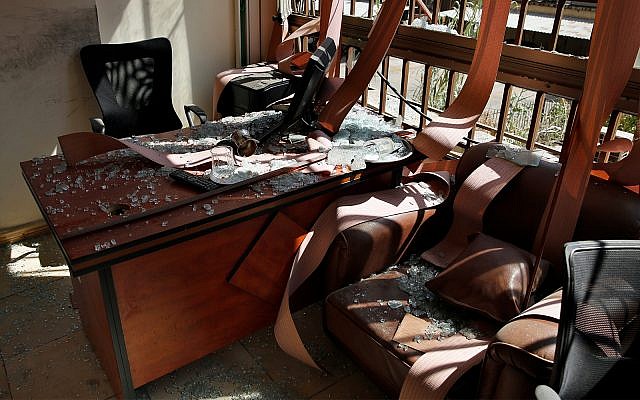
The incident came hours after the Israel Defense Forces carried out airstrikes in Syria against what it said was an imminent Iranian plot to attack the Jewish state with explosives-laden drones.
Israeli warplanes fly over Lebanon regularly and have struck inside neighboring Syria from Lebanese airspace on numerous occasions. Israel also uses drones to monitor Hezbollah activity in southern Lebanon, according to Beirut.
As reported by The Times of Israel
